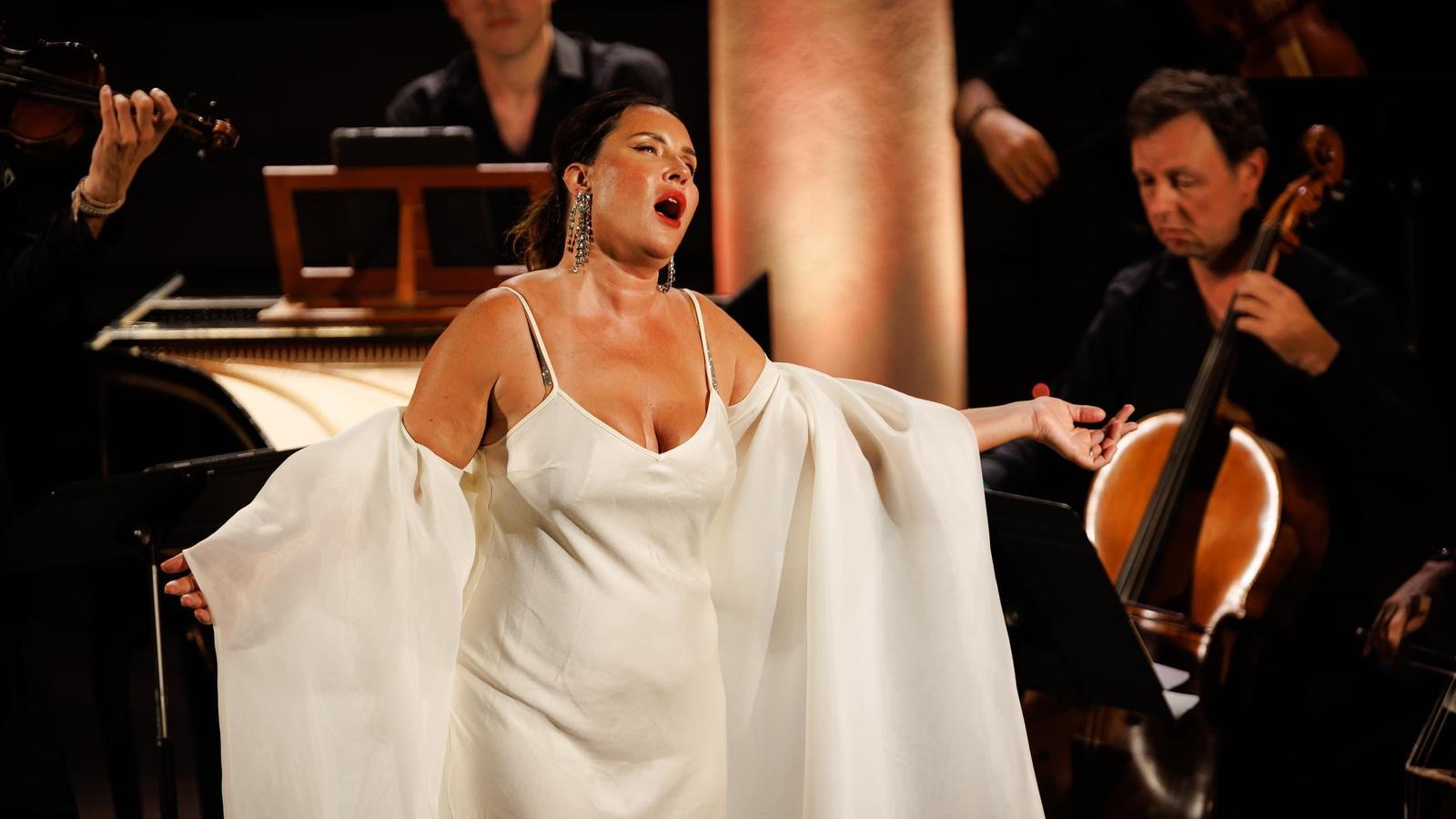Baroque with fire
Georg Friedrich Haendel was the great co-star of the evening


PollençaOnce again, the names of the stars of the fourth concert of the Pollença Festival led to a rave-worthy crowd; that is to say, a full house. There was a good reason: the soprano Sonya Yoncheva, accompanied by the Orchestre de la Opéra Royal de Versailles, conducted by Stefan Plewniak, are names and surnames of the same magnitude as the rest of the stars of the packed edition. On the other hand, the recital had an added value, namely the fact that it featured Baroque music, especially opera, from top to bottom. It is not typical, nor are any of the arias very well-known. Probably the only one that can be described as extremely famous is the aria Lascia ch'io pianga, from the opera Rinaldo, by Handel, the star of an evening that best describes as peculiar. Let's take it one step at a time. A star of the show, because of the twelve pieces announced in the program, eleven were by the German who left for England and conquered it. Structured in a very precise and even traditional way, with a Overture which gave way to one or two arias from the same opera. Conventional, but only up to this point, and peculiar because already, from theOverture Serse's opening, it was clear that the way of interpreting it was completely outside the Baroque canons, which require, or not, sensitivity and subtlety. Plewniak and the sixteen members of the group attacked with an energy and intensity that exceeded the customs of our hearing, but the canons are there, to be dynamited from within. On the other hand, Sonya Yoncheva faced theShadow never was, with some difficulty. It was a strange feeling. Everything was getting better, and when it came to Ah, mio co, schernito sei!, d'Alcina, Everything was in its place, not without a frenetic accompaniment that took some getting used to. It's a brave and risky choice. And so the last piece of the first part sounded, Thick Concerto in D major, Op. 6 No. 4 by Arcangelo Corelli, who was a violinist, composer, and conductor of Queen Christina of Sweden's orchestra.
The second part lowered the decibels, towards a more classical, calm reading, as Theodora's aria requires, With darkness deep, of an exquisiteness and difficulty to show off, without question, the great protagonist, who then after the solemn Overture Rinaldo, interpreted the aforementioned and delicate Lascia ch'io pianga. The concert had reached its climax. All that was missing was, Come back to vagheggiar, by Alcina. From here the encore section, which culminated with a festive, cheerful and participatory version of the Danse du grand calumete de la paix, of The gallant indis, by Jean-Philippe Rameau. More baroque cono fuoco, with the audience spellbound, interacting with the protagonists with their mamballetas.
